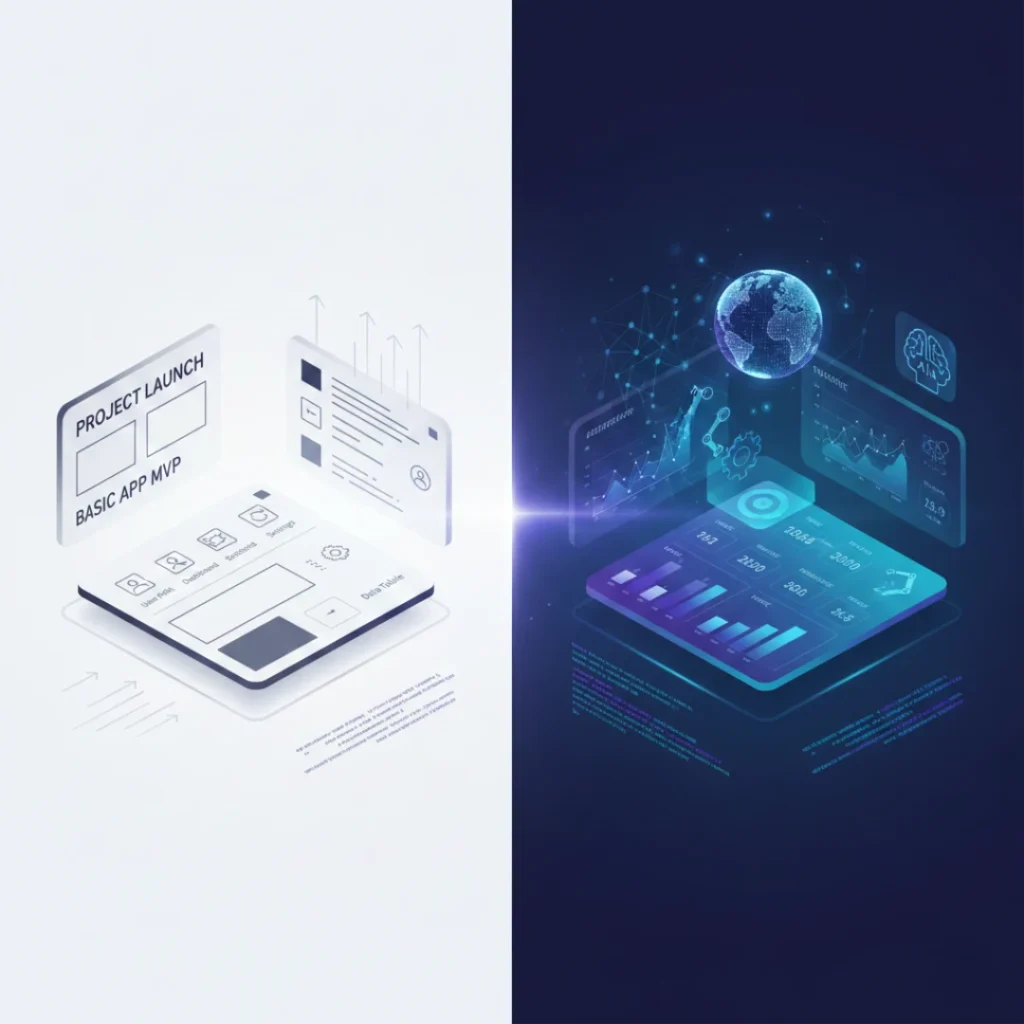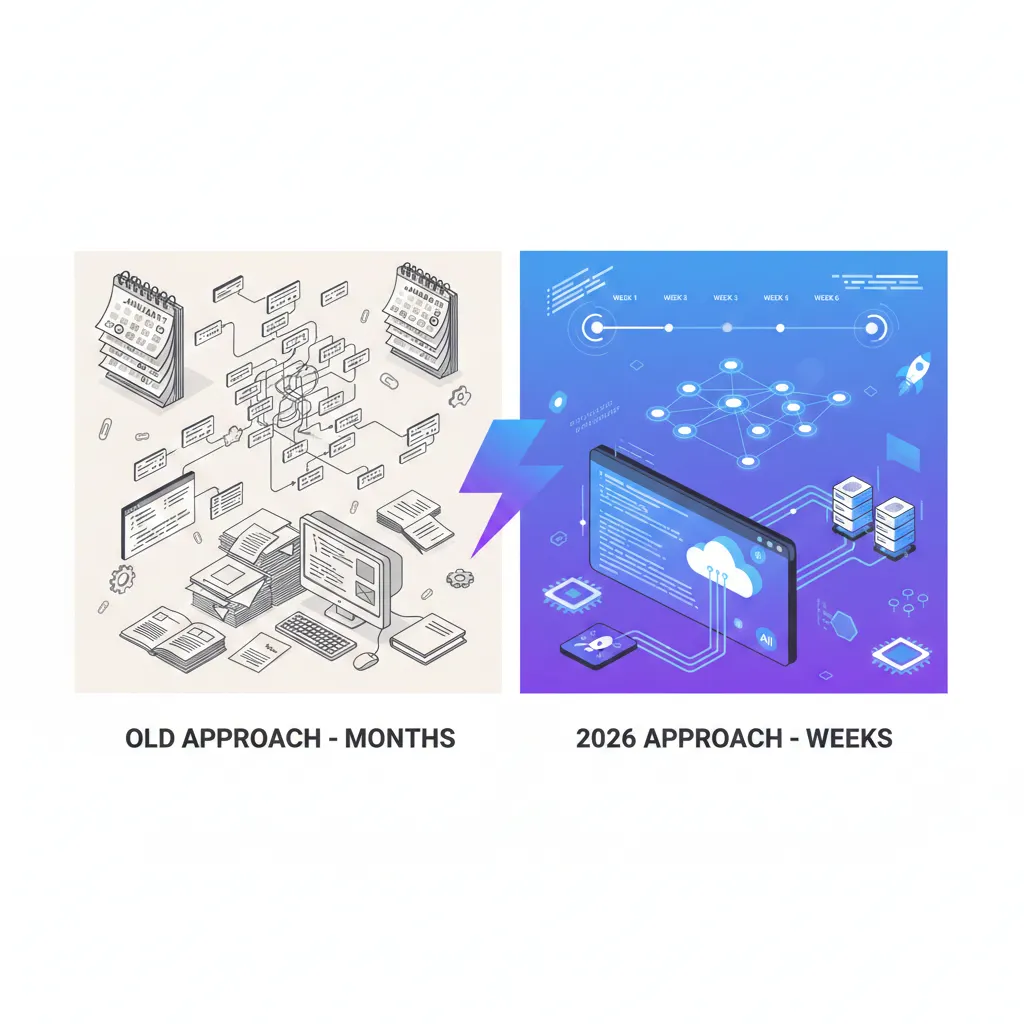In today’s rapidly evolving digital landscape, automation alone is no longer enough to keep businesses competitive. Traditional systems—though effective for repetitive tasks—lack adaptability and decision-making intelligence. This is where Agentic AI systems emerge as the next leap forward.
Agentic AI combines automation with autonomy, enabling systems not just to perform tasks but to think, decide, and act intelligently. Businesses that make this transition are gaining measurable advantages in productivity, scalability, and innovation.
At Zackriya Solutions, we help enterprises and startups embrace this transformation by designing intelligent AI agents that understand context, learn continuously, and act independently — all while maintaining privacy-first, scalable architectures.
1. Understanding the Shift: From Automation to Agentic AI
Traditional Automation: Rule-Based Efficiency
Traditional automation relies on predefined rules. It executes repetitive, structured tasks efficiently — like processing invoices, managing data entry, or sending notifications.
However, these systems have limitations:
- They can’t adapt to new data or exceptions.
- They depend heavily on human supervision.
- They don’t learn from outcomes.
While such automation boosts short-term efficiency, it can’t keep up with modern business complexity.
Agentic AI: Autonomous Decision-Making
Agentic AI systems, on the other hand, are built using advanced models that mimic human-like reasoning. They don’t just follow scripts — they analyze data, make decisions, and take actions independently.
An AI agent can:
- Prioritize tasks dynamically.
- Communicate across systems (CRMs, ERPs, APIs).
- Adapt workflows based on new information.
- Continuously learn to improve outcomes.
This makes Agentic AI ideal for businesses aiming to achieve operational autonomy and cost optimization simultaneously.
2. Key Benefits of Adopting Agentic AI Systems
1. Smarter Decision-Making
Agentic AI systems interpret context, detect anomalies, and take intelligent actions in real time.
For instance, an AI agent in customer support can identify sentiment and route queries intelligently, reducing human intervention by up to 70%.
2. Continuous Learning
Unlike static automation, Agentic AI learns from historical data and user feedback. It improves over time — becoming faster and more accurate.
3. Integration and Collaboration
Agentic AI doesn’t operate in silos. It integrates seamlessly with existing enterprise tools like CRMs, accounting systems, and cloud dashboards to create a connected workflow.
4. Reduced Operational Costs
By automating decision-heavy processes, businesses can save up to 40% in operational costs while improving service delivery speed.
5. Scalability and Adaptability
As businesses grow, Agentic AI systems scale dynamically without needing complete workflow redesigns.
At Zackriya Solutions, our AI consulting team ensures smooth integration of such systems, from MVP prototypes to enterprise-grade deployment.
3. Key Steps to Transition Successfully
Step 1: Audit Existing Automation Systems
Start by identifying your current automation capabilities — RPA tools, scripts, and workflows.
Evaluate:
- What tasks are rule-based?
- Where does human input slow the process?
- Which workflows generate the most data?
Step 2: Define Intelligent Automation Goals
Your AI goals should align with business KPIs. Common objectives include:
- Increasing accuracy in predictions.
- Reducing manual decision dependencies.
- Improving process turnaround time.
Step 3: Build a Custom AI Strategy
At this stage, AI consulting experts like Zackriya Solutions help in designing an adoption roadmap, from selecting AI models to defining ethical guidelines and deployment methods.
Step 4: Integrate AI Agents Gradually
Start small with non-critical functions (like customer service chatbots or workflow assistants). Once performance stabilizes, scale the integration to decision-making tasks.
Step 5: Monitor, Train, and Optimize
Agentic AI requires ongoing training. Incorporate feedback loops and performance tracking using KPIs like task completion time, accuracy rate, and user satisfaction.
4. Use Cases of Agentic AI in Businesses
1. Sales and CRM Management
AI agents can track leads, send follow-ups, and prioritize prospects based on engagement data — freeing up sales teams to focus on conversions.
2. HR Automation
From candidate screening to scheduling interviews, Agentic AI reduces HR workloads by handling repetitive tasks intelligently.
3. Operations and Logistics
AI agents predict demand, optimize supply chain routes, and adjust schedules based on real-time disruptions — boosting efficiency by up to 35%.
4. Customer Support
AI-driven assistants manage support tickets, generate instant responses, and escalate complex cases — delivering faster resolutions with lower costs.
5. Finance and Compliance
AI agents can verify transactions, flag anomalies, and automate reporting — ensuring compliance while reducing human errors.
5. Common Challenges (and How to Overcome Them)
1. Integration Complexity
Legacy systems may not easily support AI agent integration. Our AI Product Engineering service helps design APIs and microservices to enable seamless connectivity.
2. Data Security Concerns
Zackriya prioritizes privacy-first AI infrastructure, your data stays within secure on-premise or hybrid environments.
3. Resistance to Change
Employee training and internal awareness programs can help teams understand how Agentic AI complements, not replaces, human intelligence.
4. Model Maintenance
Continuous retraining ensures AI agents stay accurate and relevant. Our AI Infrastructure Services simplify this process with automated pipelines.
6. Why Choose Zackriya Solutions for Agentic AI Implementation
At Zackriya Solutions, we combine deep AI expertise with real-world business understanding to deliver Agentic AI systems that drive measurable results.
Our core services include:
- AI Consulting – Designing transformation strategies.
- Generative AI Solutions – Enabling intelligent automation across workflows.
- AI Infrastructure Engineering – Building scalable, secure AI environments.
- Custom AI Agents – Tailored to your business needs.
With a presence in Bengaluru, India and Atlanta, USA, we help global businesses reimagine operations with smarter, self-evolving AI.
Conclusion
Transitioning from traditional automation to Agentic AI isn’t just an upgrade — it’s a strategic move toward future-ready operations. Businesses that adopt this shift gain adaptability, scalability, and resilience in an increasingly AI-driven world.
Whether you’re just starting your AI journey or scaling enterprise-level automation, Zackriya Solutions can help architect intelligent, autonomous systems that redefine how your business operates.
Frequently Asked Questions
Agentic AI refers to AI systems capable of autonomous decision-making and task execution without continuous human intervention. Unlike traditional automation, Agentic AI can analyze data, make contextual decisions, and act independently — enabling smarter, scalable business operations.
Traditional automation follows fixed rules and workflows, while Agentic AI learns and adapts in real time. It can handle unstructured data, make complex decisions, and evolve with experience — offering businesses a far more intelligent and scalable solution.
Agentic AI automates knowledge-based tasks like customer support, data analysis, and workflow management. This reduces the need to hire additional staff for repetitive or routine operations, allowing companies to scale faster with existing teams.
Agentic AI can manage tasks such as lead qualification, report generation, workflow scheduling, email management, and even decision-making processes in HR, sales, and operations — freeing human employees to focus on strategic work.
Absolutely. Agentic AI tools can be customized to fit smaller teams, helping automate customer communication, scheduling, and analytics. It allows small businesses to scale efficiently without increasing payroll or infrastructure costs.
By automating decision-heavy tasks and minimizing manual intervention, Agentic AI enables teams to focus on high-value work. Businesses can process more data, complete projects faster, and reduce downtime — resulting in up to 40% productivity improvement.
Industries like healthcare, finance, logistics, IT services, and retail benefit the most. These sectors rely on data-driven decisions, and Agentic AI helps them streamline operations, improve accuracy, and scale without adding new resources.




